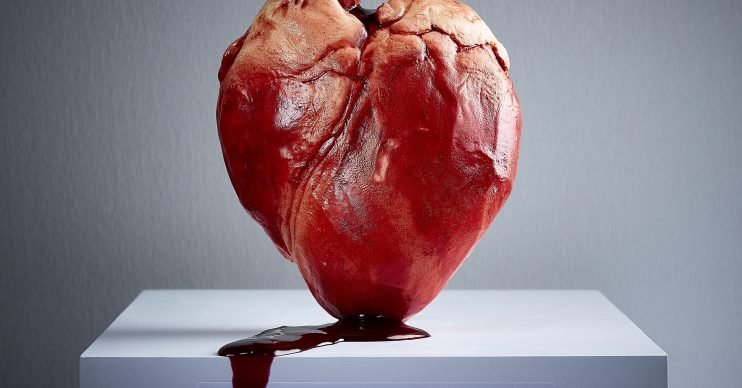Heart disease is the top cause of death in the U.S. While it can’t be cured or reversed, medications, procedures, and lifestyle changes can help manage symptoms.
According to the CDC, 1 in 5 deaths in 2021—about 695,000 people—were due to heart disease.
Who Gets Heart Disease?
Heart disease doesn’t pick and choose—it’s the leading killer for many groups, including white, Hispanic, and Black populations. Nearly half of all Americans are at risk, and that number keeps climbing.
Though it can be deadly, most cases are preventable. By adopting healthy habits early, you can live longer with a stronger heart.
What Are the Different Types of Heart Disease?
Heart disease covers a wide range of cardiovascular issues. Several conditions fall under this category, including:
- Arrhythmia
- Atherosclerosis
- Cardiomyopathy
- Congenital heart defects
- Coronary artery disease (CAD)
- Heart infections
The term “cardiovascular disease” also includes conditions that specifically affect blood vessels.
What Are the Symptoms of Heart Disease?
Different types of heart disease cause different symptoms.
Arrhythmia (abnormal heart rhythm) can lead to a heartbeat that’s too fast or slow.
Atherosclerosis (reduced blood flow) can cause chest pain, shortness of breath, fatigue, and weak leg muscles.
Congenital heart defects (present at birth) may go undiagnosed or cause symptoms later.
CAD (plaque buildup in arteries) affects oxygen-rich blood flow.
Cardiomyopathy (thickened or weakened heart muscle) has its own set of symptoms.
Heart infections (like endocarditis or myocarditis) also come with specific signs.
What Are the Symptoms of Heart Disease in Women?
Women often experience different symptoms than men, especially with CAD. A 2016 study found that women having a heart attack were more likely to report anxiety, indigestion, and fatigue—not the classic chest pain or tingling.
These symptoms can be mistaken for depression, menopause, or anxiety.
What Causes Heart Disease?
Each type has its own unique cause:
- Arrhythmia – Diabetes, CAD, heart defects, high blood pressure, or certain meds.
- Congenital heart defects – Develop in the womb; some go undetected for years.
- Cardiomyopathy – Can be genetic or due to other medical conditions.
- Heart infections – Usually caused by bacteria, viruses, or parasites.
What Are the Risk Factors for Heart Disease?
Some risks are controllable, others aren’t. The CDC says about 47% of Americans have at least one risk factor, such as:
- High blood pressure
- High cholesterol or low HDL (“good” cholesterol)
- Smoking
- Obesity
- Lack of exercise
Smoking, for example, doubles your risk. Diabetes also raises the chance of heart complications.
Uncontrollable risks:
- Family history
- Ethnicity
- Sex (men are at higher risk)
- Age
A family history is especially concerning if a male relative under 55 or a female under 65 had heart disease.
How Is Heart Disease Diagnosed?
Doctors use several tests:
Physical exams & blood tests – Check cholesterol and inflammation.
Noninvasive tests – EKG, echocardiogram, stress test, CT scan, MRI.
Invasive tests – Cardiac catheterization, coronary angiography.
What Treatments Are Available?
Treatment depends on the type and severity:
Lifestyle changes – Healthy diet (like DASH), regular exercise, quitting smoking, limiting alcohol.
Medications – Beta-blockers, blood thinners, ACE inhibitors.
Surgery/procedures – Stents, bypass surgery, or other interventions.
How Can I Prevent Heart Disease?
While some risks (like genetics) can’t be changed, you can lower others:
- Aim for healthy blood pressure & cholesterol – Below 120/80 mm Hg is ideal.
- Stay active – 30–60 minutes of exercise most days.
- Quit smoking – Nicotine narrows blood vessels, increasing risk.
- Manage stress – Chronic stress contributes to heart problems.
Small steps make a big difference over time.
FAQs
Does high blood pressure cause heart disease?
Yes—hypertension makes the heart work harder, thickening muscles and narrowing arteries.
Is heart disease curable?
No, but treatments and lifestyle changes can manage symptoms.
Is a slow heart rate (sinus bradycardia) dangerous?
Not always—it’s common in athletes. But sometimes it can cause problems.
What’s the best exercise for a leaky heart valve?
Walking is great. Aim for a pace where you’re breathing hard but can still talk.
Why are beta-blockers used?
They slow the heart, lower blood pressure, and block adrenaline effects.
Takeaway
Almost half of Americans are at risk for heart disease—but healthy habits can prevent or manage it. Taking care of your heart now means a healthier future.

